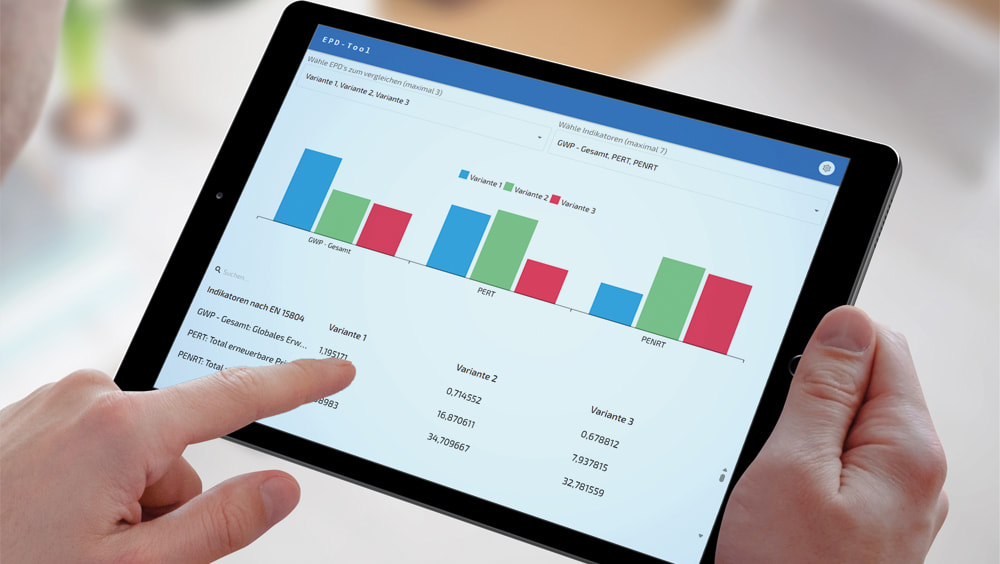Understanding and applying environmental product declarations (EPDs)
The importance of environmental product declarations is growing. In some areas of industry, environmental information in accordance with EN 15804 is already required, and in general it often offers a competitive advantage over other manufacturers, as many customers demand standardised and comparable evidence of environmental information from suppliers. Further training on this topic provides the necessary know-how to create and interpret EPDs.

New SKZ course: Understanding and applying environmental product declarations (EPDs) (Source: SKZ/AdobeStock_110841731)
Environmental product declarations contain a wealth of information
An Environmental Product Declaration (EPD) is a standardised document that quantifies the environmental impact of a (construction) product throughout its life cycle in accordance with ISO 14025, a Type III environmental label.
An EPD covers environmental impacts such as climate change and acidification, as well as resource consumption and waste. In total, there are 37 indicators covering all relevant environmental impacts.
The EPD is primarily used for communication with various interest groups. The target group for an EPD is B2B customers, e.g. civil engineers or architects, as well as anyone who purchases construction products. This includes end users, but also the general public and public authorities. EPDs offer clear advantages for companies in terms of creating transparency about the environmental information of their products and meeting the requirements of customers, public authorities and certification systems.
Background knowledge is required to create an EPD and use it efficiently
The SKZ Plastics Centre offers a practical training course entitled ‘Understanding and applying environmental product declarations (EPDs)’, which provides participants with a sound introduction to the topic of EPDs.
The seminar begins with an overview of the regulatory framework, standards and stakeholders in the field of environmental product declarations. Subsequent topics include the EPD creation process and the role of EPDs in common certification systems in the context of sustainable construction.
The focus is on practical benefits: participants learn how to read published EPDs, extract relevant information and evaluate results in terms of data quality, system boundaries and environmental impacts. Practical exercises and real-life examples deepen their understanding. Current developments such as the digitalisation and automation of EPD creation are also discussed.
‘EPDs have long been more than a niche topic. Those who understand their language gain a competitive advantage,’ emphasises Antonia Ivanda, Senior Scientist at SKZ. ‘Our course provides participants with the necessary know-how to navigate confidently in the field of standards, customer requirements and sustainability strategies.’
The course is aimed at companies that develop, manufacture or distribute construction products and want to strengthen their expertise in the field of sustainability. Acquiring knowledge on how to interpret and communicate EPD results helps participants meet the increasing demands of customers and markets.


